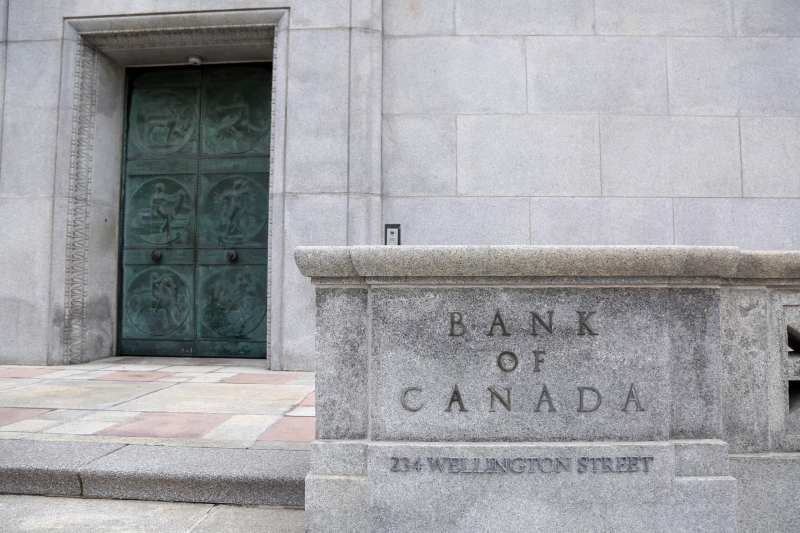The Bank of Canada in Ottawa, Ontario, Canada, on July 12, 2023. Canada’s central bank on July 12, 2023, raised its key interest rate by 25 basis points to five percent, its highest level since 2001. While the Bank of Canada acknowledged that global inflation was easing, it explained its decision — which was in line with analyst expectations — by saying: “Robust demand and tight labor markets are causing persistent inflationary pressures in services.” (Photo by Dave Chan / AFP)
Ottawa, Canada — The Bank of Canada on Wednesday cut its key lending rate 25 basis points to 3.0 percent, noting that US tariff threats are creating uncertainty for the economy.
“The economy is expected to strengthen gradually and inflation to stay close to target (of two percent),” the central bank said. “However, if broad-based and significant tariffs were imposed, the resilience of Canada’s economy would be tested.”
“A protracted trade conflict (with the United States) would most likely lead to weaker GDP and higher prices in Canada,” it added.
US President Donald Trump has said he would slap 25 percent tariffs on imports from US neighbors Canada and Mexico as early as February 1.
Retaliation by Canada in the form of matching counter tariffs, which officials have told AFP are already in the works, risks leading to a trade war between the two allies.
Canada’s central bank said the situation has created “more-than-usual uncertainty” with the scope and duration of such a trade conflict “impossible to predict.”
It noted that the Canadian dollar has depreciated materially in advance of the tariffs being imposed. Oil prices have been volatile and rose above the bank’s last projection in October 2024.
Overall, the Canadian economy has recently picked up, despite weak business investment and a soft labour market, with both strong consumption and housing activity expected to continue.
The bank, however, lowered its growth forecast to 1.8 percent in both 2025 and 2026.


